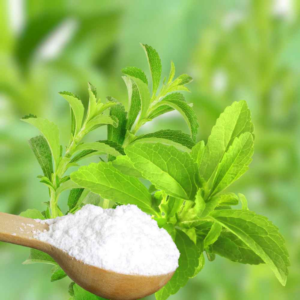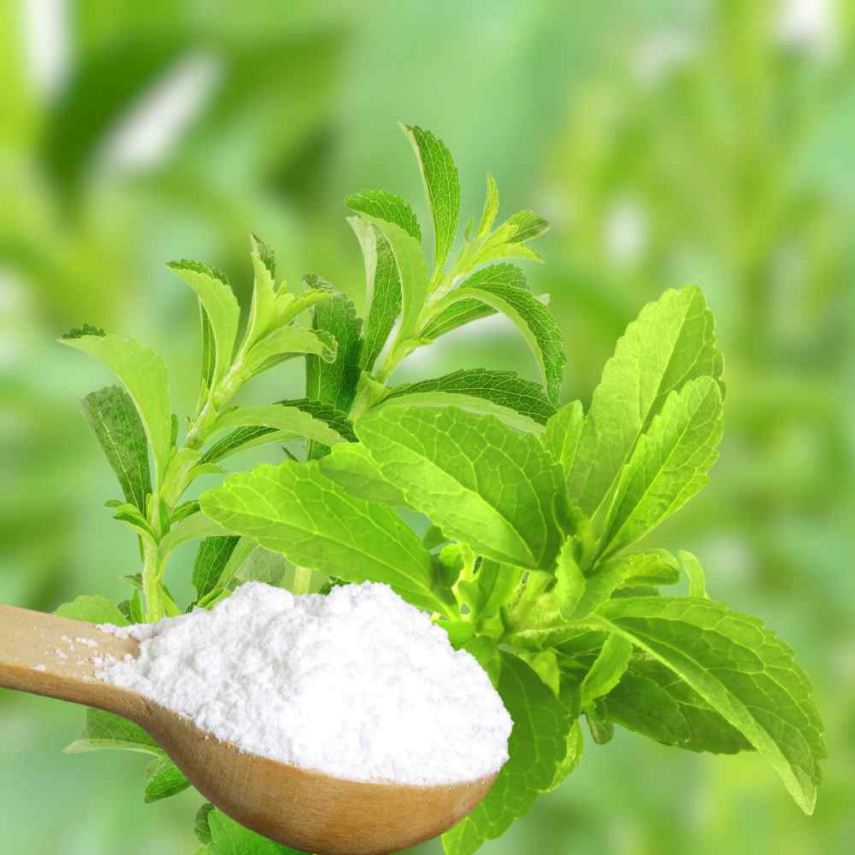Because stevia is natural, it is often seen as a good substitute for sugar and artificial sweeteners, but all may not be as it seems. In fact, stevia should be treated with caution because there is evidence that it has endocrine-disrupting properties.
Steviol glycosides have a steroid hormone structure. Examples of steroid hormones are cortisol, testosterone, progesterone and estrogen. So, it’s not surprising that stevia acts like a hormone and interacts with hormonal systems in the body.
Stevia Is an Endocrine Disruptor

The World Health Organization defines endocrine-disrupting chemicals as “an exogenous substance or mixture that alters function(s) of the endocrine system and consequently causes adverse health effects in an intact organism, or its progeny, or (sub)populations”. In plain English, an endocrine disruptor is any chemical that messes up any hormone, hormone receptor, or feedback loop in the endocrine system.
The original research pointing to this possibility came from animal studies showing the contraceptive effects of stevia in both males and females. In particular, it has been shown to have contraceptive properties in female rats, suggesting that stevia may have an impact on oestrogen, progesterone, or both.
In another study, male rats fed stevia extracts showed decreased fertility, reduced testosterone levels, and testicular atrophy.
These studies were debated until another study, published in 2016, (https://pubmed.ncbi.nlm.nih.gov/26965840/) which confirmed the endocrine-disrupting potential of stevia. In particular, stevia increases the production of progesterone, while blocking its receptor. Progesterone is essential for female reproductive health, including maintaining pregnancy, regulating the menstrual cycle, and fertility.
In fact, progesterone receptor blockers are used clinically as contraceptives and to terminate pregnancy. Traditionally, the stevia plant is used by women of the Guarani Indians in Brazil to control fertility.
There seems to be enough evidence to suggest that anyone with hormone imbalances or fertility concerns may be best to avoid stevia.
While it’s best to re-educate the palate and create less need for sweets, for occasional consumption I natural sugars such as molasses, honey and maple syrup.
If you are looking to get pregnant in the near future, you need to really check what you are eating and what chemicals you are exposed to. This is something that Mizan practitioners can help with.

